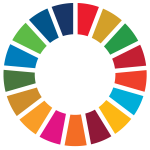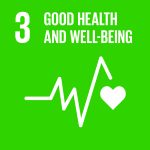Esta web utiliza cookies para que podamos ofrecerte la mejor experiencia de usuario posible. La información de las cookies se almacena en tu navegador y realiza funciones tales como reconocerte cuando vuelves a nuestra web o ayudar a nuestro equipo a comprender qué secciones de la web encuentras más interesantes y útiles.
Inter-university Observatory of Public Health (IOPH)
Description
Institution
Fundación Universitaria Juan N. Corpas

Organizations/areas of the university involved
Fundación Universitaria Juan N. Corpas (Colombia): Master of Public Health, Global Initiatives Department, Universidad de los Andes (Colombia): Medicine Faculty, Universidad San Martín de Porres (Perú): Medicine and Public Health Programs, Des Moines University (U.S.A):Global Health Department and Medicine and Public Health Programs
Country
COLOMBIA
The IOPH is an international collective intelligence project, where students learn from public health and SGDs with the objective of tracking and proposing solutions to advance in the 2030 agenda.
This initiative was born in 2018, when Fundación Universitaria Juan N. Corpas participated in a course for medical students on health indicators for decision-making at Universidad del Valle de Atemajac, and in 2019 at Universidad San Martín de Porres. After the course and having as a reference that the construction of indicators framed in the common goal of fulfilling the SDGs, the institutions decided to create a program where Colombian, Mexican and Peruvian students could come together to create strategies and recommendations to the governments of their countries. This initiative was later on joined by the Faculty of Medicine of Universidad de los Andes and University Of Des Moines.
The IOPH became an international framework where professors and students from health disciplines in different universities come together, in a research internship, to work on the SDGs. This initiative is an ongoing program conceived as a co-curricular program, where students register to be part of the observatory and have a research internship, either virtual or onsite. Once students register, professors teach basic information regarding public health and the connection with the SDG health-related targets. Students then get the autonomy to choose indicators where they will track the progress, examine challenges and propose recommendations to the circumstances that are subject to modifications. Due to the international character of the program, students are able to compare distinctive features between countries, and cities, providing inputs for the recommendations. Additionally, the observatory encourages mobility of students between countries in order to collect information from relevant actors that work in health contexts.
The IOPH is looking to expand partnering institutions so the network and impact can go beyond the already participating institutions. Also, the IOPH is looking forward to strengthening the website so it gets visibility and to become a source for consulting relevant information not only for the purposes of the course, but also for the general public. The observatory is also looking constantly to reinforce the relation with public authorities that have important roles in the decision-making processes.
Results and impact measured or expected
We measure the sustainability benefits of our efforts through campus and community engagement. Our primary goal is outreach/engagement; and our primary metric is the number of individuals, campus departments, and organizations we are able to reach and support with our work; including, but not limited to: undergraduate students and key stakeholders from the UC Berkeley community or City of Berkeley. With five students per committee, and five committees each semester, SURG has at least 25 members per semester – with a combination of returning and new members. Our main event per semester is our research symposium – which has drawn visitors from various departments on campus, sustainability-oriented offices across the U.S, and the general public. We also gauge our level of engagement with various forms of communications (i.e. website, newsletters, and social media that highlight SURG’s work). In all, our posts and events have reached hundreds of individuals.
Connection with the SDG framework
The student’s program framed in the observatory, looks forward to encouraging cross-cutting skills in students. Students gain abilities in critical thinking, partnership competencies, how to influence change, empathy and communication. These skills are connected with the specific knowledge of their profession connects them to the real world through their exposure to decision-making processes in health contexts. The program wants to train future leaders in public health issues.
Beyond the skills students can acquire during their participation, they are also part of an action-bases learning context. They work on the indicators with the objective of proposing solutions to the barriers in advancing towards reaching the 2030 agenda. They are also part of a network of universities, that works together with local and national authorities, and other actors that are relevant in the health sectors.
Barriers and follow up
The IOPH is at a starting phase, since it was founded in the year 2018. It was having great advances but then the world health emergency arose, and the advances started slowing down. One of the main components of the observatory is the mobility scheme and this has not been able to occur for the past months. Additionally, the networking spaces became more difficult due to occupied agendas of the different actors.
However, virtuality has also become an opportunity to have progressed, since students have engaged from their countries, requiring less money to travel but still being able to exchange spaces with students from the different universities. The IOPH has also focused the additional time in applying to grants that will expand impact and visibility of the IOPH.
Transferability of the initiative
This initiative will scale rapidly to other universities since the projections already consider summing up other partner universities. In this sense, more students from new universities will be able to gain the knowledge and the skills, and to live the real-world experience of relating to external actors with actual proposals of solutions.
This observatory can also be a best practice for other universities that want to create an observatory on different subjects. Acquiring visibility through this type of initiatives will also contribute to reaching contexts and geographies that do not have a clear idea on how to put their ideas into action.
Education 4 SDG funciona gracias a WordPress



